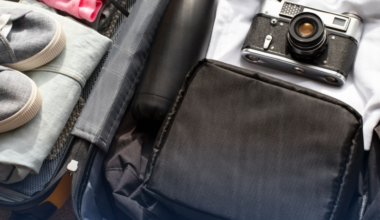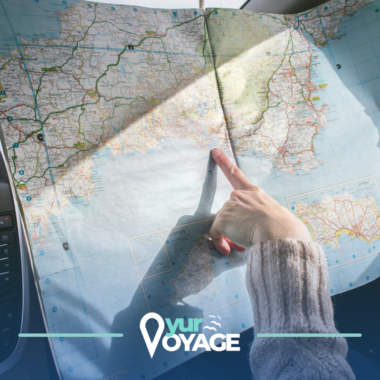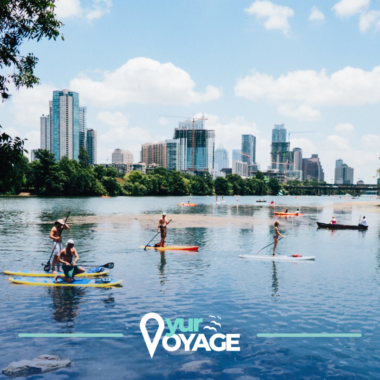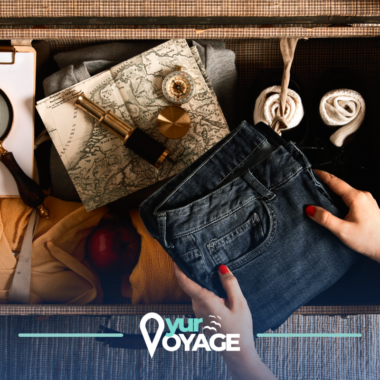Table of Contents
Embarking on a solo trip is an exhilarating experience, offering unparalleled freedom and personal growth. However, one of the most critical aspects of solo travel often overlooked is budgeting. Effective budgeting can make the difference between a stress-free adventure and a trip plagued with financial worries. This comprehensive guide will walk you through every aspect of budgeting for your solo trip, providing you with the knowledge and tools to manage your finances effectively while exploring the world alone.
Understanding the Basics of Solo Travel Budgeting
Solo travel brings with it unique financial considerations. Unlike traveling with a group, where costs are often shared, solo travelers bear the full brunt of expenses. This reality makes budgeting an essential skill for any solo adventurer.
Why is Budgeting Crucial for Solo Travelers?
Budgeting helps you to:
- Avoid Overspending: Without a clear budget, it’s easy to overspend, especially when you’re experiencing new cultures and adventures.
- Ensure Financial Security: A well-planned budget keeps you financially secure, from the start of your trip to your return.
- Enhance Travel Experience: Knowing your financial boundaries allows you to make more informed choices, reducing stress and increasing enjoyment.
In solo travel, every decision you make – from where you stay to how you get around – has a direct impact on your finances. Thus, understanding and implementing a solid budget is key to a successful and enjoyable solo travel experience.
Setting Your Solo Travel Budget
Creating a budget for your solo trip begins with a realistic assessment of your financial situation. This involves calculating your available funds and setting spending limits that align with your travel goals and style.
Factors Influencing Your Budget:
- Destination: Some destinations are inherently more expensive than others. For example, a day in Tokyo might cost significantly more than a day in Bangkok.
- Duration of the Trip: Longer trips require a larger budget, as daily expenses accumulate over time.
- Travel Style: Are you a luxury traveler, or do you prefer budget-friendly options? Your style of travel greatly influences your budget.
To set your budget, start by listing all potential expenses, including flights, accommodation, food, activities, and emergency funds. Allocate a realistic amount to each category, and adjust as necessary to match your total available funds.
Estimating Travel Costs
A crucial step in budgeting for your solo trip is accurately estimating your travel costs. This requires a detailed look at the various expenses you’ll encounter. By anticipating these costs, you can create a more realistic and effective budget.
Typical Travel Expenses:
- Transportation: This includes flights, trains, buses, and local transport. Costs vary greatly depending on distance, mode of transport, and how far in advance you book. For international flights, use tools like Skyscanner to compare prices. Remember to factor in airport transfers and daily transportation costs.
- Accommodation: Prices range from budget hostels to luxury hotels. Websites like Booking.com or Hostelworld can help you gauge prices in your destination. Consider alternative options like Airbnb or Couchsurfing for a more local experience.
- Food: Daily meal costs depend on whether you plan to eat out, cook, or mix both. Research typical food costs in your destination. Street food is often a cheaper and authentic option.
- Activities: Set aside a portion of your budget for tours, museum entries, and other activities. Prioritize what’s most important to you and check for discounts or free entry days.
- Emergencies: Always have a contingency fund for unexpected expenses like medical emergencies or last-minute changes in plans.
Average Cost Ranges for Different Destinations:
It’s helpful to research the average daily cost for your chosen destination. For instance, Southeast Asian countries like Thailand or Vietnam can be significantly cheaper than destinations in Western Europe or North America. Websites like Numbeo provide cost of living estimates that can be useful in this research.
Accommodation Strategies for Solo Travelers
Accommodation can consume a significant portion of your travel budget, especially when traveling solo. However, with smart planning and the right strategies, you can find options that are both affordable and comfortable.
Comparing Costs of Different Accommodation Types
- Hostels: Ideal for solo travelers looking to meet others. They are often the most budget-friendly option, offering dormitory-style rooms. Websites like Hostelworld are great for finding and comparing hostels.
- Hotels: While generally more expensive, booking a hotel room can offer more privacy and amenities. Look for budget hotels or consider staying slightly outside the city center for better rates.
- Airbnb: This can be a cost-effective choice, especially if you opt for a private room instead of an entire place. Airbnb offers the added benefit of a more local experience.
- Couchsurfing: For the most budget-conscious and adventurous, Couchsurfing provides free accommodations with locals. It’s a great way to meet residents and save money, though it requires flexibility and an open mind.
Tips on Finding Affordable Yet Safe Accommodation
- Book in Advance: Especially during peak seasons, booking early can secure better rates.
- Read Reviews: Use platforms like TripAdvisor to read reviews and ensure the safety and quality of the accommodation.
- Consider Location: Sometimes, staying a bit further from the city center can save money, but consider transportation costs to and from major attractions.
Saving on Transportation
Transportation is another significant expense in your travel budget. The key is choosing the most cost-effective methods that align with your itinerary and comfort level.
Local Transportation vs. Rental Cars, Flights, Trains
- Local Transportation: Buses and trains are usually the cheapest way to get around. Research public transportation options and consider multi-day or tourist passes for savings.
- Rental Cars: Can be convenient for exploring remote areas but consider the costs of fuel, insurance, and parking.
- Flights: For long distances, budget airlines can be a good option. Use fare comparison sites like Kayak to find the best deals.
- Trains: In regions like Europe, train travel can be a scenic and efficient way to move between cities. Look into rail passes for extended travel.
Managing Daily Expenses
When on a solo trip, managing daily expenses such as meals, activities, and incidental purchases is crucial to staying within your budget. Here’s how to effectively control these costs without compromising the quality of your travel experience.
Budgeting for Daily Meals and Activities
- Meals: Plan a mix of dining out and self-catering. Street food and local eateries are often more affordable than tourist-centric restaurants. Consider visiting a local market and preparing some meals if your accommodation allows cooking. Allocate a daily budget for food and try to stick to it.
- Activities: Prioritize activities that are most important to you and look for free or low-cost alternatives. Many cities offer free walking tours, museums have free entry days, and nature itself is often free to explore. Keep a separate budget for paid activities and excursions, and always look for discounts or group deals that can be cheaper even for solo travelers.
The Cost-Benefit of Tourist Passes, Meal Planning, and Local Markets
- Tourist Passes: These can offer great value, providing access to multiple attractions or public transportation at a discounted rate. Assess whether the places you wish to visit are covered by the pass and if it aligns with your planned itinerary.
- Meal Planning: Planning your meals can significantly reduce food expenses. Opt for accommodations with breakfast included, carry snacks for long sightseeing days, and consider having your main meal at lunch when prices are often lower than dinner.
- Local Markets: Visiting local markets not only saves money but also offers a glimpse into the local culture and cuisine. You can find fresh, affordable ingredients if you choose to cook, or sample local delicacies at lower prices than restaurants.
Entertainment and Activities on a Budget
Enjoying your solo trip doesn’t have to be expensive. There are numerous ways to entertain yourself and explore your destination without breaking the bank.
Ideas for Free or Low-Cost Activities and Entertainment
- Explore Nature: Many natural attractions like beaches, mountains, and parks are free to visit. Hiking, swimming, and simply enjoying the scenery can be incredibly fulfilling and cost nothing.
- Cultural Experiences: Look for local community events, markets, and festivals, which often have free entry and are a great way to immerse yourself in the local culture.
- Art and History: Many cities have free museums, art galleries, or historical sites. Research in advance to find these hidden gems.
The key to enjoying your solo trip on a budget is to balance paid activities with these free or low-cost alternatives, ensuring a rich travel experience without overspending.
Handling Money While Traveling Solo
Effective management of your finances is crucial during solo travel. Dealing with different currencies, avoiding extra fees, and keeping your money safe are all part of the challenge. Here’s how to handle money efficiently while on the road.
Carrying Cash vs. Cards
- Cash: Always have some local currency on hand for small purchases where cards may not be accepted. Be cautious about carrying large amounts of cash for safety reasons.
- Debit/Credit Cards: Cards are convenient and often offer good exchange rates. However, be aware of foreign transaction fees. Inform your bank about your travel plans to avoid your card being flagged for suspicious activity.
Currency Exchange and Managing Transaction Fees
- Currency Exchange: Avoid exchanging money at airports where rates are less favorable. Research beforehand for reputable currency exchange locations, or withdraw from ATMs upon arrival.
- Transaction Fees: Some cards have high foreign transaction fees. Consider getting a travel credit card or a debit card that does not charge these fees or refunds ATM fees.
Avoiding Common Financial Pitfalls Abroad
- Over-reliance on Cards: In some destinations, especially remote or less developed areas, card acceptance can be limited. Always have a backup plan.
- Dynamic Currency Conversion: When paying with a card, you might be asked if you want to be charged in your home currency. Always opt for the local currency to avoid additional conversion charges.
Emergency Funds and Unexpected Costs
Having a financial buffer for unexpected expenses is a must in any travel budget, especially for solo travelers.
Importance of Setting Aside Money for Emergencies
- Unexpected Expenses: These can include medical emergencies, last-minute travel changes, or lost/stolen items. An emergency fund ensures you’re covered in these situations.
- How Much to Set Aside: A general rule is to have an additional 10-20% of your total trip budget set aside for emergencies.
Examples of Unexpected Costs and How to Prepare for Them
- Medical Emergencies: Travel insurance can cover major expenses, but having accessible funds for immediate needs is important.
- Travel Delays or Cancellations: Budget for potential additional accommodation and food costs in case of delays.
Budgeting Tools and Resources for Solo Travelers
In today’s digital age, numerous tools and resources can simplify budgeting and expense tracking for solo travelers. Leveraging these can help you maintain a clear overview of your finances, ensuring you stay within budget throughout your trip.
Useful Apps and Tools for Tracking Expenses
- Expense Tracking Apps: Apps like Mint or Trail Wallet allow you to categorize expenses and set daily or trip-wise budgets. These tools can be incredibly helpful in monitoring your spending in real-time.
- Currency Conversion Apps: Apps like XE Currency provide up-to-date currency conversion rates, which are essential when dealing with multiple currencies.
- Spreadsheets: For those who prefer a more hands-on approach, a simple spreadsheet can be effective. Tools like Google Sheets or Microsoft Excel allow you to create a personalized budget tracker.
How to Use These Tools Effectively During the Trip
- Regularly Update Expenses: Make it a habit to log expenses daily. This helps in avoiding overspending and gives you a clear picture of where your money is going.
- Set Alerts and Limits: Many apps allow you to set alerts when you’re nearing your budget limit in a certain category, helping you stay on track.
Money-Saving Tips and Hacks
Smart money-saving strategies can stretch your budget further, allowing you to enjoy more experiences or even extend your trip.
Practical Tips for Saving Money Before and During Solo Travel
- Early Bookings: Booking flights and accommodations in advance often secures better rates.
- Eating Like a Local: Opt for local eateries or street food which is usually cheaper and more authentic than tourist-focused restaurants.
- Travel in the Off-Season: Prices for flights, accommodations, and activities can be significantly lower outside peak travel seasons.
Advice on Discounts, Travel Deals, and Off-Season Travel
- Discounts and Deals: Keep an eye out for deals on travel websites, and consider signing up for newsletters from airlines and travel agencies for special offers.
- Off-Season Advantages: Traveling during the off-season not only saves money but often provides a more authentic experience with fewer tourists.
Case Studies: Real Solo Travel Budgets
Real-life examples and experiences can provide valuable insights into budgeting for solo trips.
Examples of Budgeting in Different Destinations
- Budgeting in Southeast Asia: Known for being budget-friendly, many travelers have experienced extensive trips in countries like Vietnam or Thailand on a modest budget.
- Europe on a Budget: While Europe is often perceived as expensive, travelers have successfully explored regions like Eastern Europe or the Balkans on limited funds.
FAQ
When it comes to budgeting for solo travel, numerous questions arise, especially for those embarking on their first solo adventure. Here, we address some of the most common queries to help you plan your finances effectively.
Q: How do I estimate a daily budget for different countries?
A: Research the average cost of living in your destination using websites like Numbeo. Factor in accommodation, food, local transportation, and entertainment. Adjust based on your travel style – budget, moderate, or luxury.
Q: What are the best ways to save money for travel?
A: Start by setting a savings goal and create a plan to reach it. Cut unnecessary expenses, consider a side hustle, and set up a dedicated travel fund. Saving on small daily expenses can add up significantly over time.
Q: How can I handle emergencies without blowing my budget?
A: Always have an emergency fund, separate from your main travel budget. Consider travel insurance to cover major unforeseen costs like medical emergencies or trip cancellations.
Q: Are there ways to earn money while traveling solo?
A: Yes, options include freelancing, teaching English online, or working in hostels in exchange for accommodation. Websites like Upwork or Teach Away can be useful for finding remote work opportunities.
Q: How much should I budget for a solo trip?
A: It varies widely based on destination, duration, and travel style. As a general rule, calculate your expected daily expenses, add a margin for unexpected costs, and multiply by the number of days you plan to travel.
Budgeting for your solo trip is a crucial aspect of travel planning. It ensures you can enjoy your journey without financial stress. By understanding your expenses, utilizing budgeting tools, and implementing money-saving strategies, you can make the most of your solo adventure. Remember, effective budgeting is not about restricting your experiences but about maximizing them within your financial means. With these guidelines, you’re now equipped to create a budget that lets you explore the world confidently and independently.








